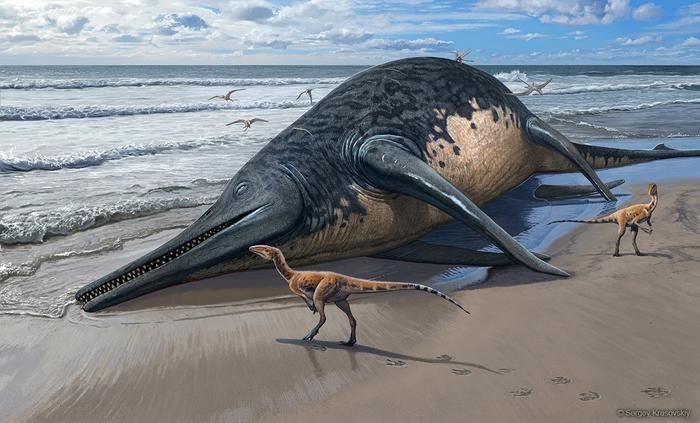Eight years after world leaders approved the historic Paris Agreement to combat climate change, countries have made only limited progress in staving off the most dangerous effects of global warming, according to a United Nations report. First official report card Concerning the global climate treaty.
Many of the worst-case climate change scenarios that were so feared in early 2010 appear much less likely today, the report said. The authors give credit in part to the 2015 Paris Agreement, under which, for the first time, almost every country agreed to submit a voluntary plan to reduce its greenhouse emissions. Since then, the rise in global greenhouse gases has slowed significantly.
However, these efforts are still insufficient to avert disaster, according to the report, which was written by representatives from the United States and South Africa and based on contributions from hundreds of governments, scientists and civil society groups from around the world.
Under the Paris Agreement, countries pledged to limit the rise in average global temperatures to “well below” 2 degrees Celsius, or 3.6 Fahrenheit, above pre-industrial levels and make good faith efforts to stay at 1.5 degrees Celsius. Scientists said that beyond this level, the risks from severe floods, forest fires, droughts, heat waves and species extinction could become uncontrollable. The Earth has already warmed by about 1.2 degrees Celsius since pre-industrial times.
Countries are far from achieving these goals. Current climate pledges would put the world on track for a temperature rise of 2.5 degrees Celsius or so by 2100, assuming countries follow through with their plans. In order to keep global warming at safer levels, global emissions must fall by about 60 percent by 2035, which will likely require a much faster expansion of energy sources such as wind, solar or nuclear power and a sharp decline in pollution. Caused by fossil fuels. Such as oil, coal and natural gas.
The report said the window of opportunity to keep warming at 1.5 degrees Celsius was “rapidly narrowing.”
The new report is part of what is known as Global inventory. When countries agreed to the Paris Agreement, they agreed to meet every five years, starting in 2023, to formally assess how the fight against climate change is going and see if they should step up their efforts.
The report, which took nearly two years to prepare, is supposed to serve as the basis for the next round of UN climate negotiations, known as COP28, which will begin in late November in Dubai, United Arab Emirates. There, countries will discuss how to respond to the global assessment and what more they can do.
“I urge governments to carefully study the report’s findings and understand what it ultimately means for them and what ambitious action they need to take next,” said Simon Steele, UN climate chief. “The global assessment process is a critical moment to achieve greater ambition and accelerate action.”
The report avoids pinpointing any single country for success or failure, highlighting one of the thorniest dynamics in global climate talks. Everyone agrees that the world as a whole must cut emissions faster, but countries disagree sharply about who exactly should do more. Developing countries such as India say rich emitters such as the United States and Europe must reduce the use of fossil fuels more quickly. US officials often point out that China needs to do more now that the country is the world’s largest emitter.
The man overseeing this year’s negotiations, Sultan Al Jaber, is the head of the UAE’s largest renewable energy company and the national oil company, a dual role that has drawn criticism from many environmentalists, who say he is unlikely to be impartial. Mediator.
Al Jaber said he wants countries to triple their renewable energy capabilities by 2030. He also wants countries to agree, for the first time, on a long-term goal of phasing out fossil fuels “relentlessly.” This language would allow the continued use of oil, coal or gas if companies can capture and bury the emissions produced by these fuels – a technology that has struggled to gain traction due to its high costs.
The new global assessment report says there is an “urgent” need for these measures, and many others.
“The UN’s polite prose highlights what is a truly damaging report for global climate efforts,” said Ani Dasgupta, president of the World Resources Institute. “Carbon emissions? Still climbing. Fiscal commitments to rich countries? Guilty. Support for adaptation? Lagging woefully.”
One persistent sticking point in global climate talks is that developing countries say they cannot quickly transition away from fossil fuels and adapt to heat waves and severe storms without outside help.
Under the Paris Agreement, rich emitting countries such as the United States and Europe pledged to provide $100 billion annually from public and private sources by 2020 for this purpose. But they have not yet fulfilled this promise. In 2020, industrialized countries provided $83.3 billion in climate finance. Only a small portion of this money goes toward adaptation, such as building seawalls or helping farmers cope with drought, which is often the most pressing need.
The report notes that developing countries will eventually need trillions of dollars to prepare for climate change, and calls for broader systemic reforms, such as reforming lending practices at multilateral banks or helping countries with large debt burdens.
“There has been a huge focus on holding developed countries accountable for their $100 billion promise, which is very important,” said Charlene Watson, senior research associate at the Overseas Development Institute. “But the reality is we’re going to need more.”
Countries have made some progress in adapting to climate threats, for example, by building flood barriers or installing early warning systems for tropical cyclones. But the report warns that these efforts are often “piecemeal” and unevenly distributed. Preparing for future threats, such as dwindling freshwater supplies or irreversible ecosystem damage, will require “transformational” changes in climate adaptation.
One obstacle is that many adaptation efforts “fail to keep pace with increasing climate impacts and risks,” the report noted.
“Tracking progress on adaptation is much more difficult than tracking progress on financing or emissions reductions,” said Richard Klein of the Stockholm Environment Institute, adding that reaching measurable global targets for adaptation will be a major challenge for the future. Climate talks.
Some experts criticized the report for being too vague in many of its recommendations. “The opportunity has been missed to make clear proposals on what countries can concretely implement, how much financial support should be provided and on what it should be spent on,” said Niklas Hone, a German climate scientist and co-founder of the New Climate Institute. “On these issues, the report often remains on the surface.”
The big question now is how countries will respond to the global assessment.
“We’ve received a lot of reports about the lack of progress over the years, but what’s different about this report is that it’s not a group of scientists or a single UN agency that is saying that,” said Rachel Kite, a veteran climate diplomat and climate researcher. Former dean of the Fletcher School at Tufts University. “This is something that all countries had a say in.”
Ms Kite added: ‘This is like sitting down with your doctor and agreeing that if your liver could get better, it really needs to be in better shape.’ “Now, are you going to get off the couch and do something about it, or are you going to sit there and ignore it?”

“Unapologetic tv specialist. Hardcore zombie trailblazer. Infuriatingly humble problem solver.”







More Stories
Anti-government protests demand the release of hostages in Gaza before Israel’s Memorial Day
Joost Klein: The Dutch contestant has been disqualified from the Eurovision Song Contest
The United States says Israel may have violated international law with US weapons in Gaza